Multi-Year Analysis Plan Page 18
ADVERTISEMENT
Engineering knowledge is necessary to construct and operate a successful commercial bioindustry
and to develop the feedstock infrastructure to support it. Engineering and analysis that provides
information to parties interested in commercializing biomass is necessary to enable widespread
investigation of biomass processing, and can play a role in reducing the financial risk associated
with pioneer plants through better understanding of the process.
Some examples of engineering knowledge include improved material and energy balance
information, kinetic models, and improved thermodynamic properties. Improved material and
energy balance information involves developing better balances around unit operations like
feedstock harvesters, conversion reactors and product separation equipment. Developing these
balances provides information about how well or poorly measurements are made and improves
confidence when using the measurements within process designs. Sometimes components that
were considered to have minor impact are found to be important so their effect on the process is
captured.
Kinetic models can be necessary to help procure financing for a commercial facility. Dr. Charles
Wyman has stated that development of kinetic models and proof that the models are valid on
several scales shows financiers that those unit operations are understood and increases confidence
in the expected yields. That increased confidence is necessary for financing a capital-intensive
6
facility like a biorefinery
.
Improved thermodynamic properties are necessary to help design integrated processes. Unlike the
crude oil industry, parameters for physical property models do not exist for many biomass
components. Without good physical property estimates, unexpected separations could lead to
inhibitor build-up in a recycle stream or another similar problem. Those issues may not appear in
small-scale experiments or short integrated runs but could cause a commercial facility to fail.
Some tasks to develop engineering knowledge are identified in research areas and are kept
separate from the analysis work (e.g., optimization of metallurgy in pretreatment, gas cleanup or
black liquor equipment). Those projects are not included here because they are separated out in
the work breakdown structure; however, results from those projects will be used to improve
process designs.
7
In 1981, DOE contracted the Rand Corporation
to seek a better understanding of the reasons for
inaccurate capital and operating cost estimates for first (pioneer) plants. The inaccurate estimates
were made during the early stages of process development. The Rand Corporation broke down
the problems that face pioneer plants into two categories: cost growth and plant performance.
They found that cost was underestimated due to many factors: new technology, impurities within
the process, complexity of the process, and inclusiveness of the process design and estimation.
Rand Corporation showed that improved understanding of designs and design issues (engineering
knowledge) improved estimates and reduced down time during initial operations.
The biorefinery can also benefit from lessons learned during the evolution of modern-day
petroleum refineries, and knowledge gained in specific integrated biorefinery projects can be
applied to other similar projects.
6
Wyman, Charles, E. “Research Directions to Support the Emergence of a New Biocommodity Industry.”
th
Presentation at the 4
Annual Green Chemistry and Engineering Conference. Washington, DC. June 27-29,
2000.
7
Rand Corporation. “Understanding Cost Growth and Plant Performance Shortfalls in Pioneer Process
Plants.” 1981.
14
ADVERTISEMENT
0 votes
Related Articles
Related forms
Related Categories
Parent category: Education
 1
1 2
2 3
3 4
4 5
5 6
6 7
7 8
8 9
9 10
10 11
11 12
12 13
13 14
14 15
15 16
16 17
17 18
18 19
19 20
20 21
21 22
22 23
23 24
24 25
25 26
26 27
27 28
28 29
29 30
30 31
31 32
32 33
33 34
34 35
35 36
36 37
37 38
38 39
39 40
40 41
41 42
42 43
43 44
44 45
45 46
46 47
47 48
48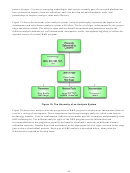 49
49 50
50 51
51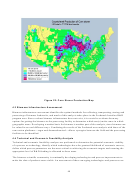 52
52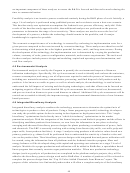 53
53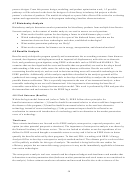 54
54 55
55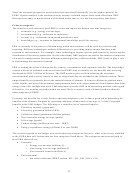 56
56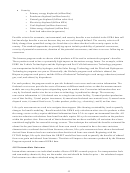 57
57 58
58 59
59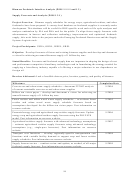 60
60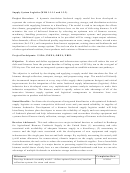 61
61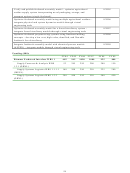 62
62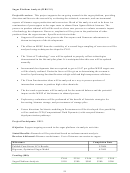 63
63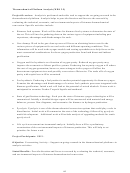 64
64 65
65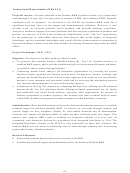 66
66 67
67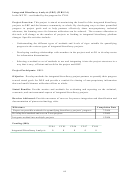 68
68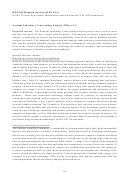 69
69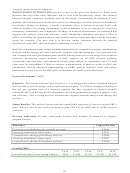 70
70 71
71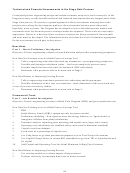 72
72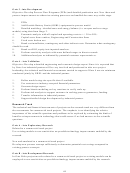 73
73 74
74 75
75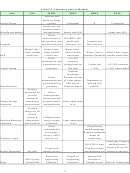 76
76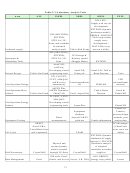 77
77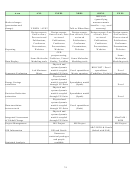 78
78 79
79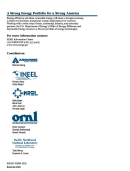 80
80








